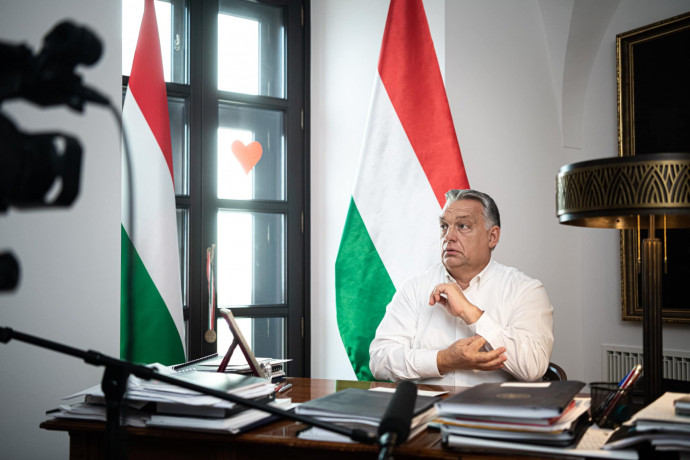
On Monday morning, Hungarian Prime Minister Viktor Orbán announced a series of new restrictions over COVID-19 that will be in effect for 30 days starting from Tuesday.
The Prime Minister noted that Hungarian coronavirus stats seem to follow those of Austria by approximately one or two weeks, therefore, Hungary has to follow in Austria's footsteps with the introduction of similar restrictions.
The Hungarian healthcare system, Orbán continued, is “well-equipped with resources such as beds, ventilators, masks, and personal protective equipment,” adding that:
"Our doctors and nurses are doing a superhuman job, but still, they are only human and their numbers are limited."
The Prime Minister said that there are still “weeks before a vaccine,” and if the virus keeps spreading at the current speed, then the healthcare system will not be able to bear the load COVID-19 places on it. In order to prevent this, the PM announced that starting from Tuesday 24:00 PM, for thirty days, the following preventive measures will be in effect:
- A curfew between 8:00 PM and 5:00 AM. “Everyone must be home by eight,” the PM said, except for emergencies, work, or commuting to and from work.
- A general ban on gatherings.
- Restaurants must close (except workplace cafeterias), only deliveries allowed. Gyms, indoor pools, museums, theatres, zoos, and other indoor recreational spaces must be closed as well. Employers in these sectors will not have to pay contributions after their employees for this period, and the state will pay 50% of their salaries, if employees are paid and there are no lay-offs.
- Shops, hairdressers, other services must be closed by 7:00 PM.
- Hotels can only host guests who travel for business purposes. For the first thirty days, the state will reimburse hotels for 80% of the bookings made until 8 November, if their employees are properly paid and there are no lay-offs.
- A general ban on public events; family and private events cannot be attended by more than 10 people. Weddings are allowed, but only with people who must be there: the couple, their parents, the witnesses, and the registrars/priest. Funerals can have at most 50 mourners.
- Sports events must be held behind closed doors.
- Recreational and amateur team sports are banned. Individual sports are allowed outdoors.
- Secondary schools (above 8th grade) and higher education must switch to remote learning. University dorms must close. Schools and kindergartens are to remain open for children under 14 years, where teachers must undergo weekly testing, even if the rapid tests used for this purpose are not that accurate.
After the number of active cases had hovered in the top hundreds for most of the summer, the spread of COVID-19 has been gaining speed once again in Hungary since late August. This morning, the Government's official COVID-19 website reported that there were 5162 new confirmed cases, 55 deaths, and 1081 recoveries in the past 24 hours, there are 86 134 active cases, 6061 people are treated in hospitals and 415 of them are on ventilators.
On Saturday, Minister of Human Capacities Miklós Kásler ordered the postponement of all elective surgeries starting from Tuesday. Speaking to state radio Kossuth on Friday, the Prime Minister said that by December, he expects 30-32 thousand people to be in hospitals, 2200 of them requiring intensive care. On the same day, Tamás Svéd, the Secretary of the Hungarian Medical Chamber warned that if the Government fails to control the spread of COVID-19, Hungary may experience a situation reminiscent of that in Italy during the spring, saying: "Soon enough, healthcare workers will be expected to work even if they are COVID19 contacts, simply because otherwise, there will be nobody to treat patients," adding that the greatest shortage is of ICU nurses.
Last Tuesday, the Prime Minister issued a state of emergency, technically, a so-called "state of danger," and announced a number of measures such as free parking, tighter public transport schedules, a curfew from midnight, and restrictions on entertainment venues. Orbán already hinted at tightening these restrictions in a video uploaded to Facebook on Saturday.
Find our charts about the Hungarian COVID-19 situation below: